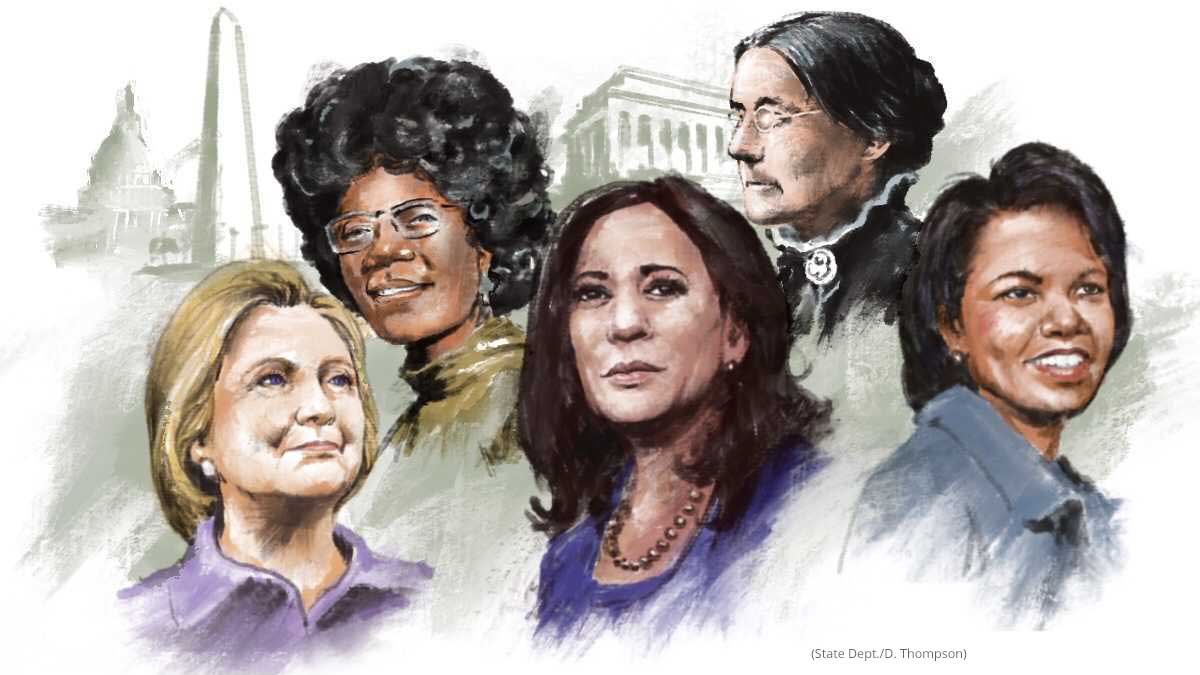
Analyzing the Historical Significance of Women in Politics
Women have played an integral role in shaping history, and nowhere is their influence more pronounced than in politics. Throughout the ages, women have broken barriers, shattered stereotypes, and blazed trails in the male-dominated world of politics. In this article, we will delve into the historical significance of women in politics, exploring their struggles, triumphs, and enduring impact on societies across the globe.
Pioneering Women in Politics
Women have been involved in politics since ancient times, albeit often behind the scenes. However, it was in the late 19th and early 20th centuries that they made significant strides in the political arena. Pioneering women like Susan B. Anthony, Elizabeth Cady Stanton, and Sojourner Truth fought tirelessly for women’s suffrage, paving the way for future generations.
Suffrage Struggles: Fighting for the Right to Vote
The battle for women’s suffrage was arduous, marked by protests, hunger strikes, and unyielding determination. In 1920, the 19th Amendment to the United States Constitution was ratified, granting women the right to vote. This momentous victory was a turning point in American history and the global fight for women’s political rights.
Women in Leadership Roles: Breaking the Glass Ceiling
Breaking through the glass ceiling has been a persistent challenge for women in politics. Nevertheless, women like Margaret Thatcher, who served as the Prime Minister of the United Kingdom, and Angela Merkel, the Chancellor of Germany, have shattered stereotypes and demonstrated that women can excel in the highest echelons of power.
Champions of Equality: Advocacy for Women’s Rights
Beyond electoral politics, women have been at the forefront of advocating for gender equality. Figures like Gloria Steinem and Malala Yousafzai have tirelessly championed women’s rights, fighting against discrimination, violence, and unequal opportunities.
Global Influencers: Notable Women in Politics
Around the world, women have made their mark in politics. From Indira Gandhi in India to Ellen Johnson Sirleaf in Liberia, female leaders have left indelible imprints on their nations. Their tenacity and vision have brought about positive change on a global scale.
A Shift in Political Landscape: The Rise of Women’s Political Movements
The 21st century has seen a surge in women’s political movements. Movements like #MeToo and #TimesUp have drawn attention to issues of sexual harassment and gender discrimination, while the Women’s Marches have mobilized millions of women to demand change. These movements are reshaping the political landscape and challenging the status quo.

Challenges Faced by Women in Politics
While progress has been made, women in politics face unique challenges. Gender bias, harassment, and a lack of representation persist in many countries. Addressing these challenges remains crucial to advancing women’s roles in politics.
The Role of Women in Modern Politics
In the modern political landscape, women play pivotal roles as lawmakers, diplomats, activists, and leaders. Their perspectives and experiences bring diversity to political discourse and help shape policies that address the needs of all citizens.
Women in Political Office: A Global Perspective
From Kamala Harris, the first female Vice President of the United States, to Jacinda Ardern, the Prime Minister of New Zealand, women occupy key political positions worldwide. Their leadership is inspiring future generations of women to pursue political careers.
The Impact of Women in Political Decision-Making
Research has shown that greater gender diversity in political decision-making leads to more comprehensive and inclusive policies. Women often prioritize issues such as healthcare, education, and social welfare, contributing to the overall well-being of their societies.
Conclusion: A Brighter Future for Women in Politics
In conclusion, the historical significance of women in politics is undeniable. Women have proven their mettle and resilience from the suffrage movement to contemporary leadership roles. As we move forward, we must continue supporting and empowering women in politics, ensuring their voices are heard and their contributions valued.
Frequently Asked Questions
- What were the earliest instances of women’s involvement in politics?
The earliest instances of women’s involvement in politics can be traced back to ancient civilizations, where they often played advisory roles to rulers and monarchs. However, significant participation in electoral politics emerged in the late 19th and early 20th centuries.
- Who were some of the key figures in the women’s suffrage movement?
Key figures in the women’s suffrage movement include Susan B. Anthony, Elizabeth Cady Stanton, Sojourner Truth, and Alice Paul. These women dedicated their lives to securing the right to vote for women in the United States.
- How has the role of women in politics evolved over the years?
The role of women in politics has evolved significantly, from early struggles for suffrage to contemporary leadership positions. Today, women hold key political offices and play vital roles in shaping policy and legislation.
- What challenges do women still face in politics today?
Women in politics continue to face challenges such as gender bias, unequal representation, and harassment. These barriers hinder their full participation in political decision-making.
- Why is it important to have more women in politics?
Having more women in politics is essential for promoting gender equality and ensuring that policies address the diverse needs of society. Women bring unique perspectives and experiences to political discourse, leading to more inclusive governance.
In conclusion, women have made remarkable strides in politics throughout history, and their contributions continue to shape the world we live in today. By acknowledging their historical significance and addressing the challenges they still face, we can work towards a more equitable and inclusive future in politics.
